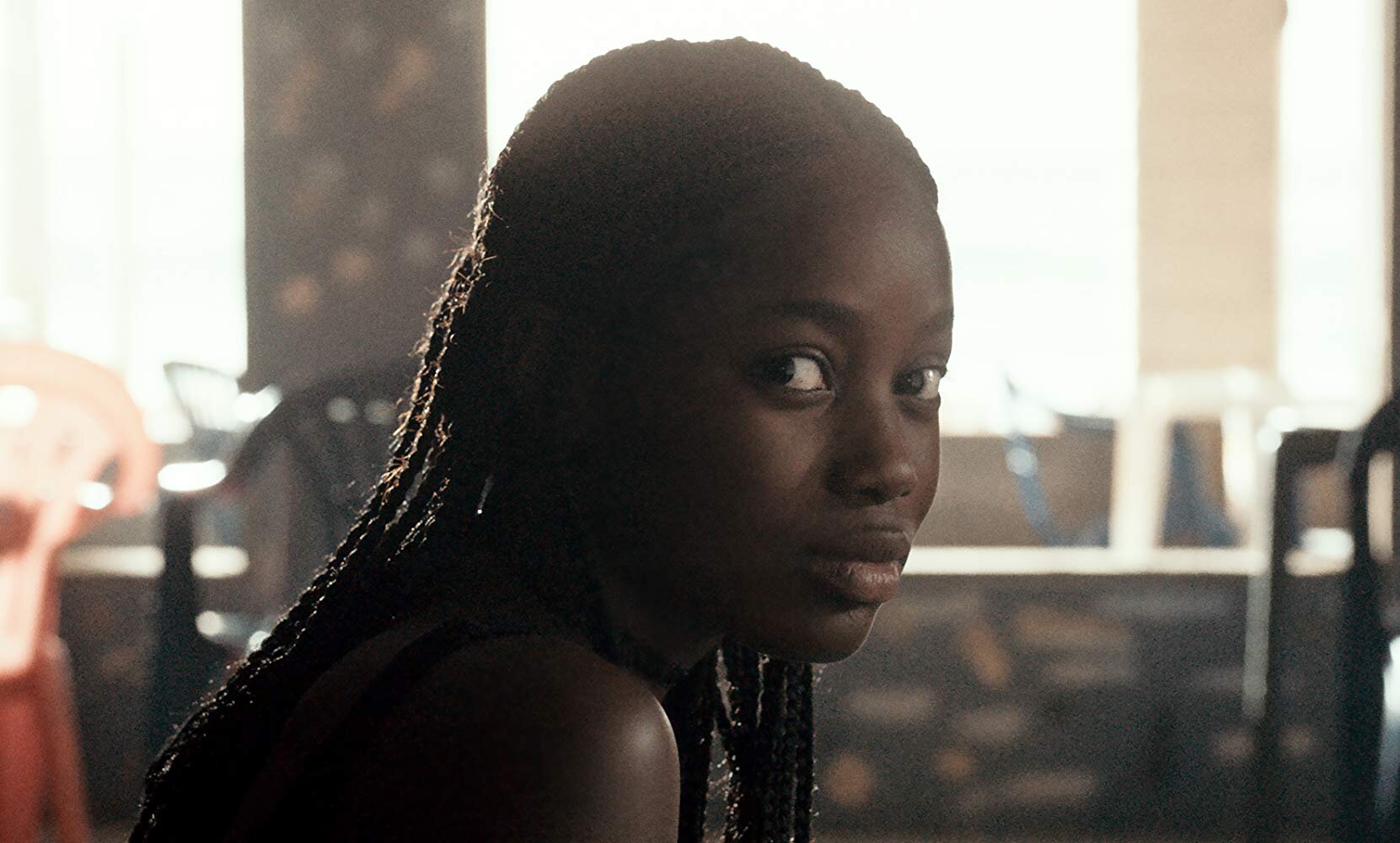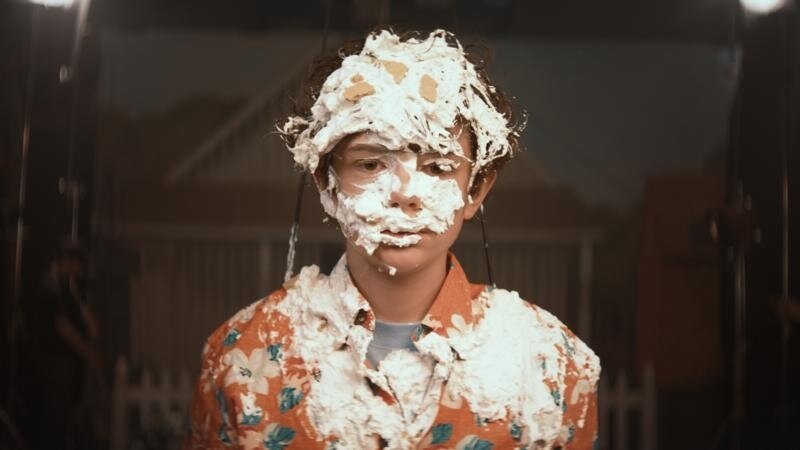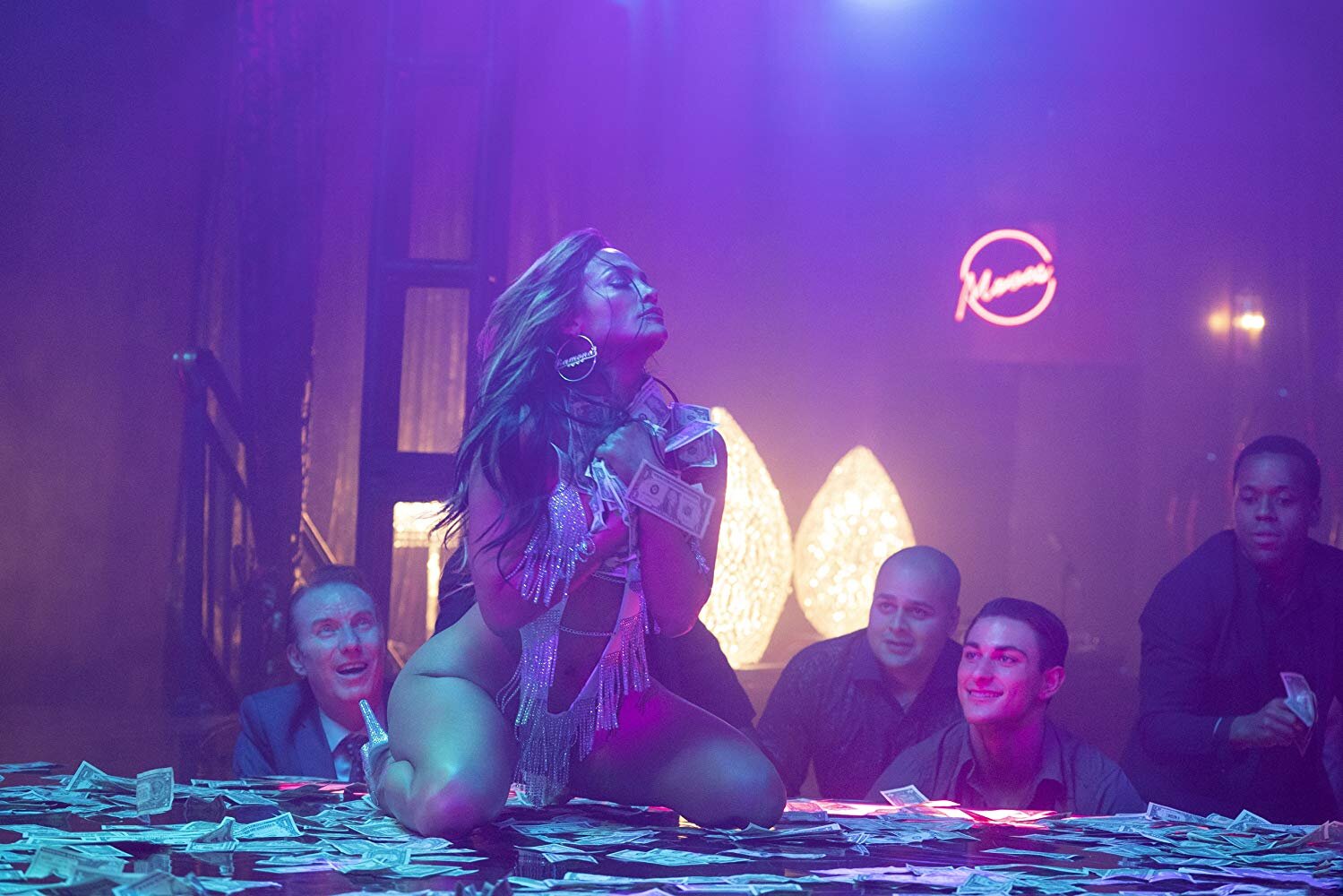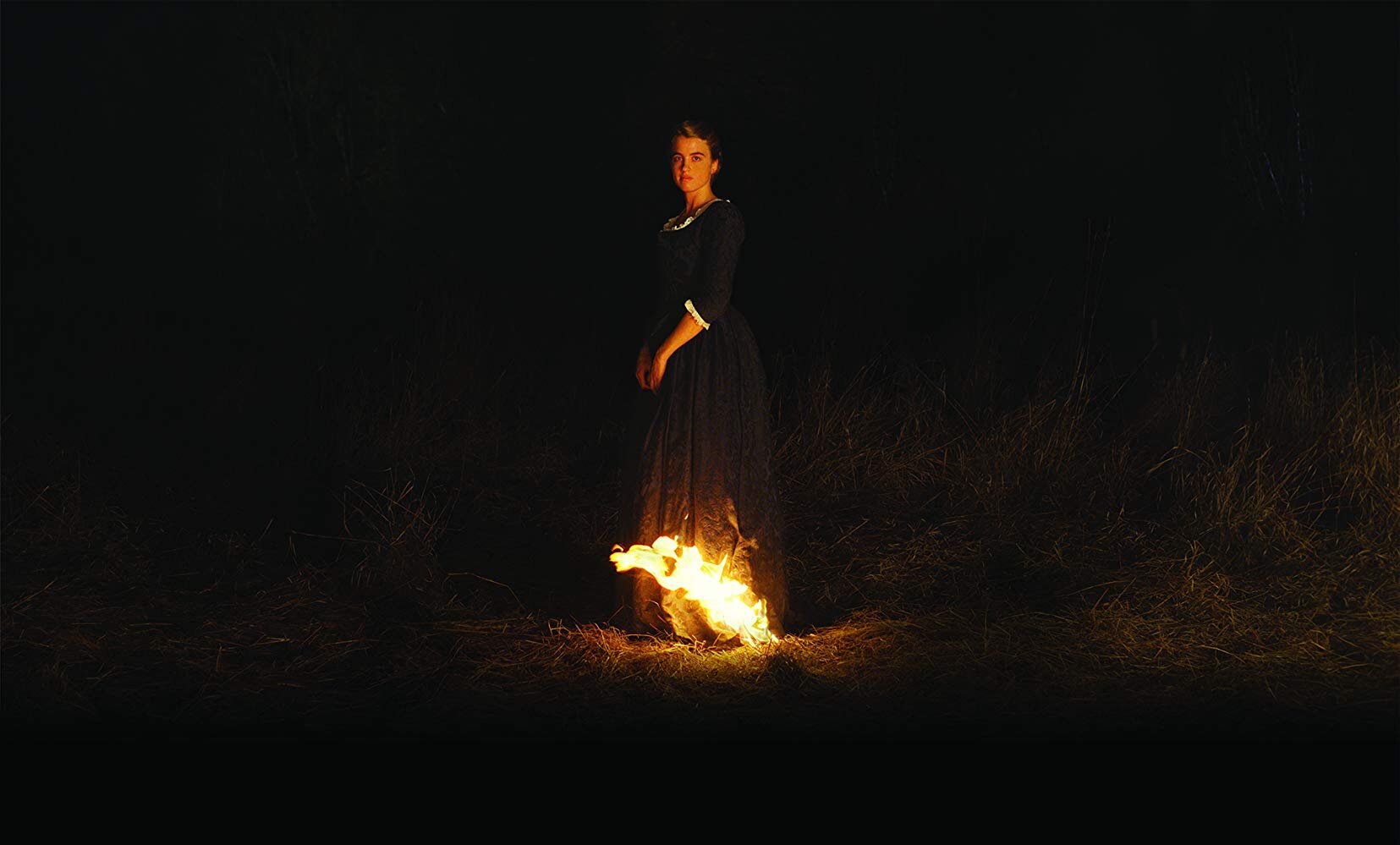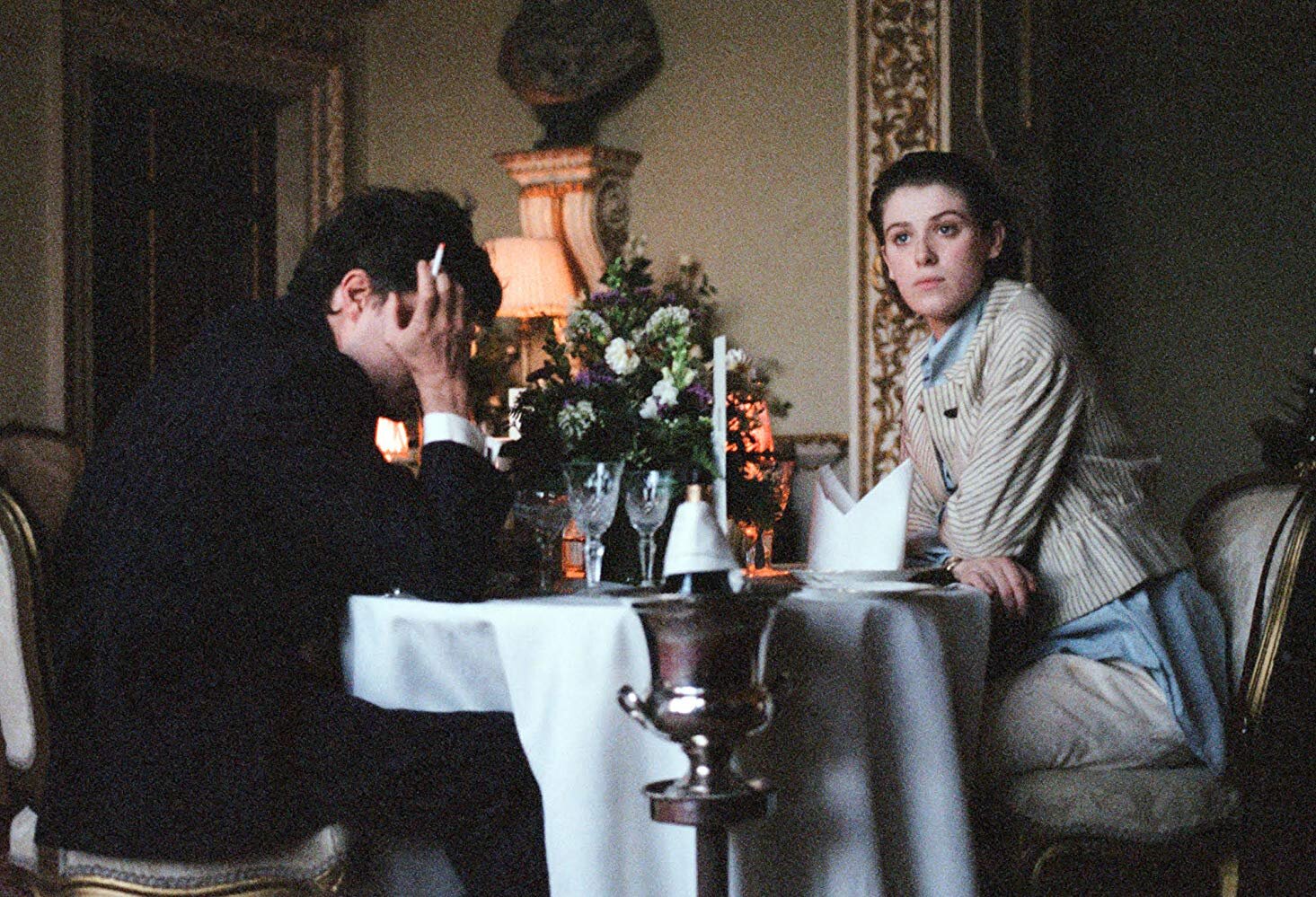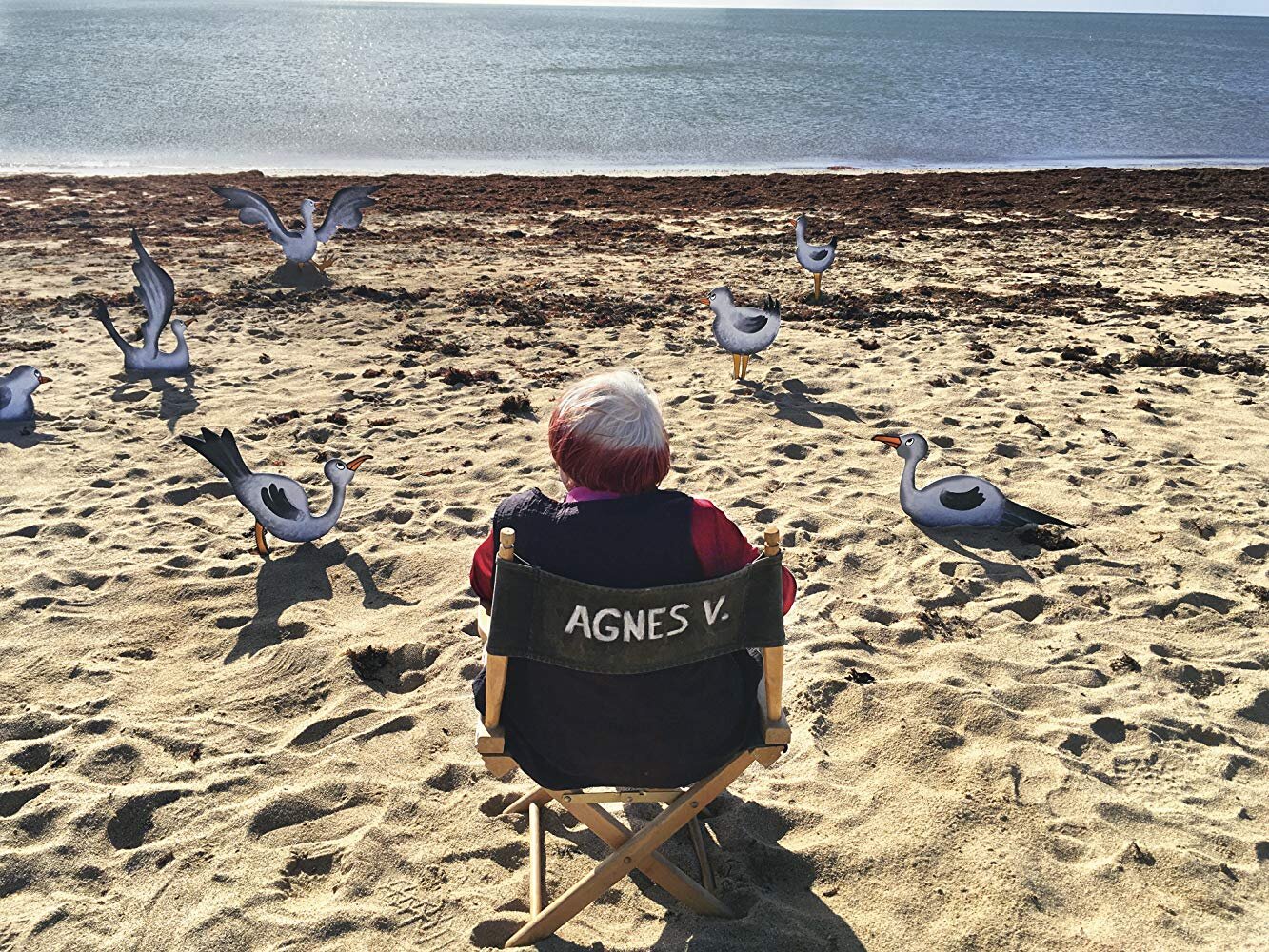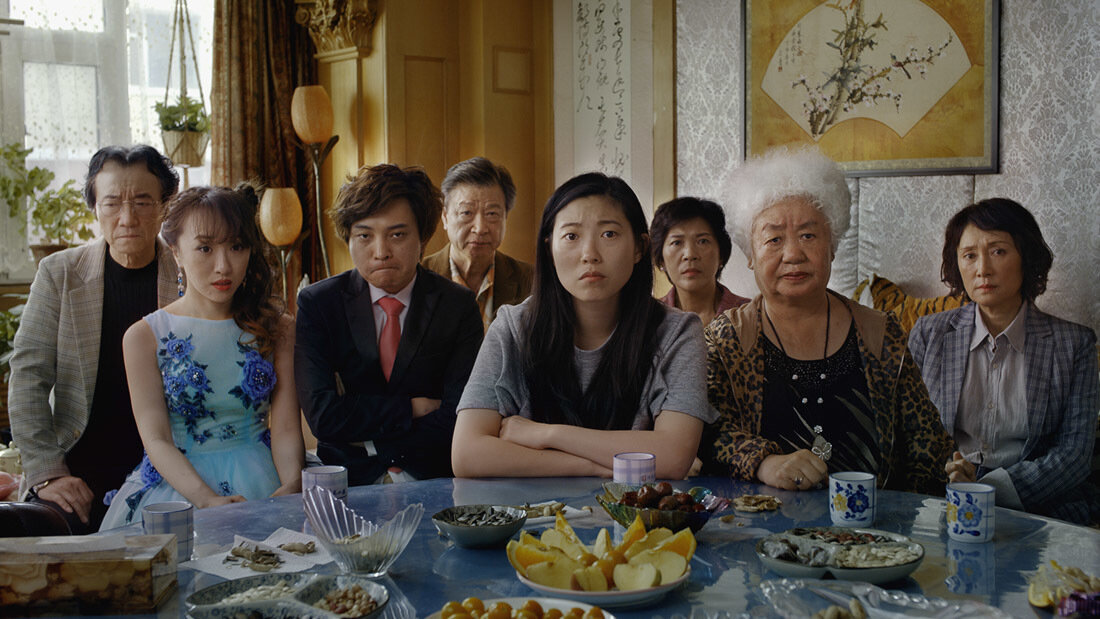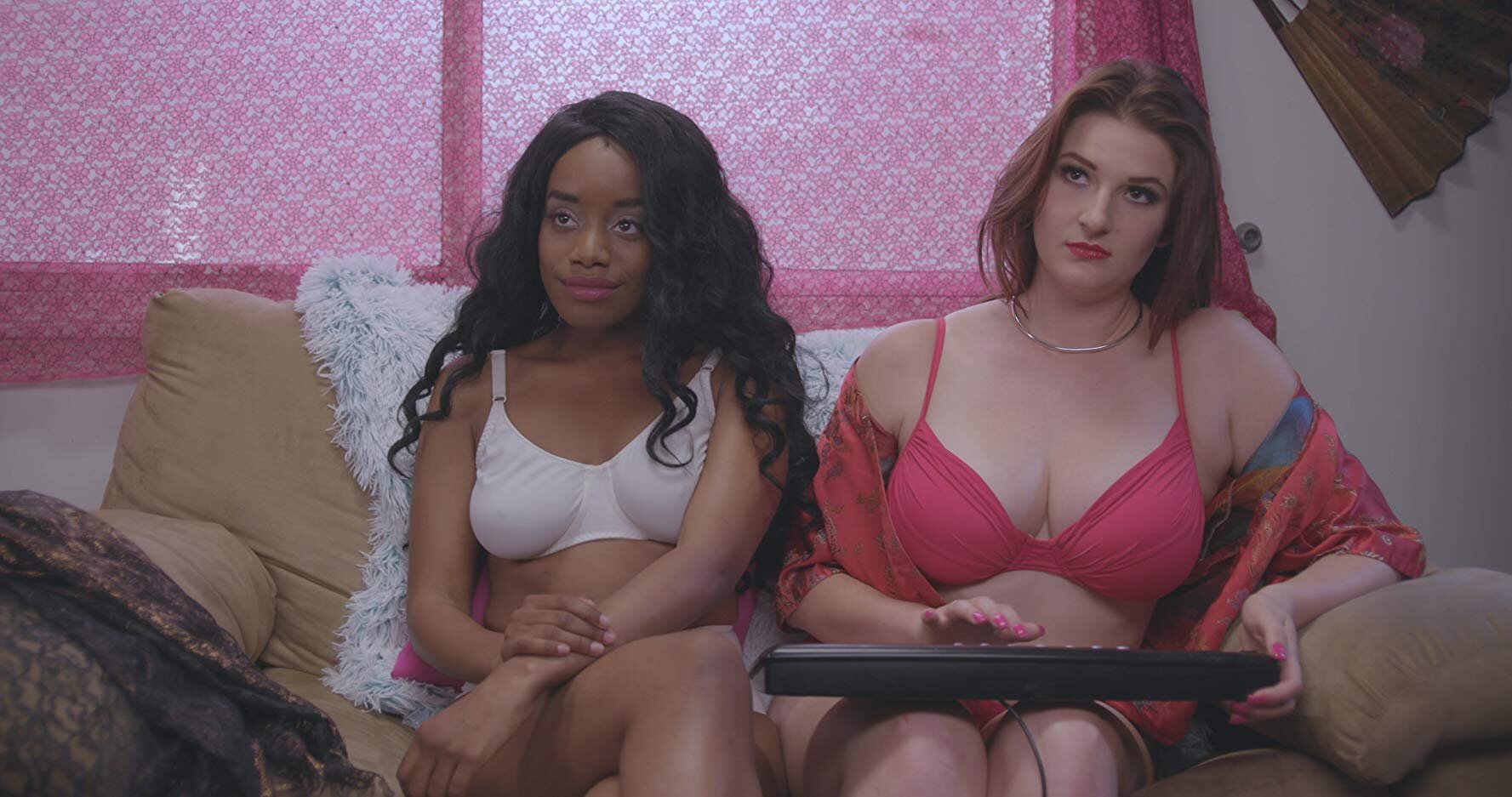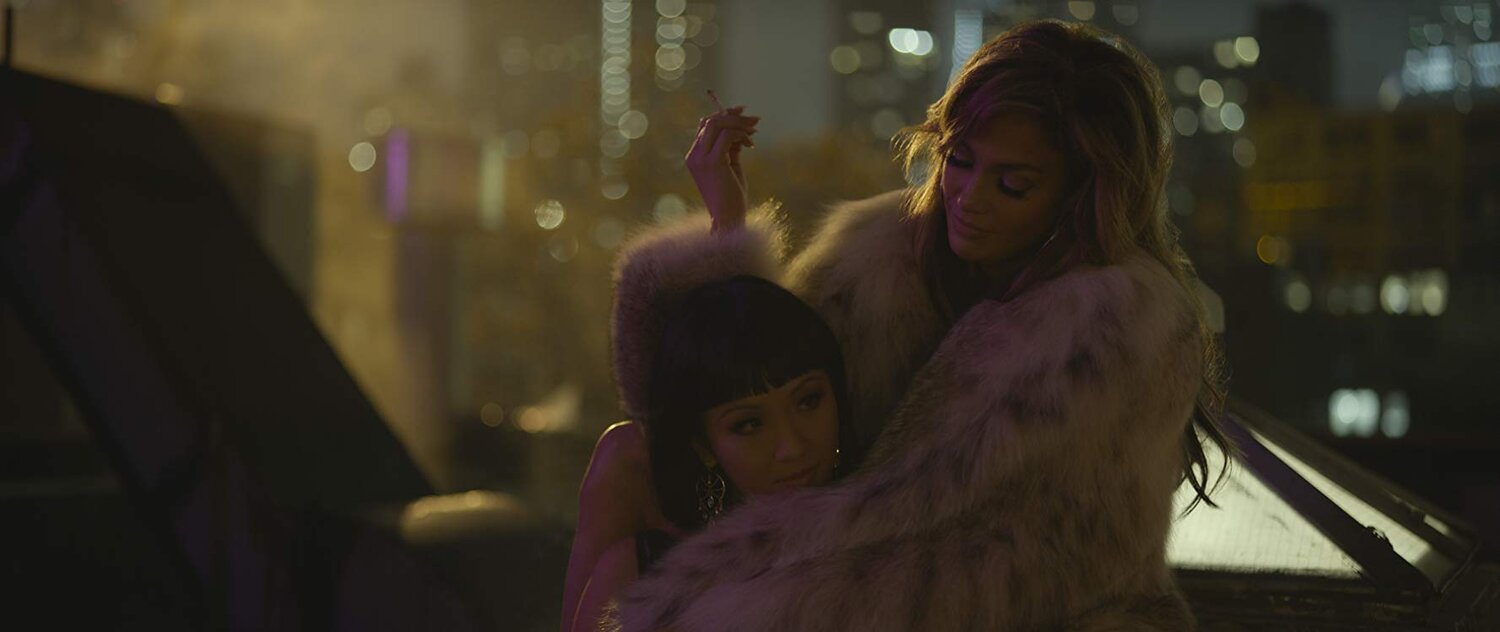By Andrea Thompson
2019 was a great year for women in film, with a variety of filmmakers bringing complex stories of women’s experiences to the screen. Below are theoness Film Girl Film has chosen as the standouts, with honorable mentions included.
15. Honey Boy
Amazon Studios
This is a film that screams vanity project. Shia LaBeouf not only penned the story of the turbulent childhood and young adulthood of Otis (played by Noah Jupe at 12 and Lucas Hedges at 22) a child star and obvious proxy, he also stars as Otis's alcoholic father James, whose good (ish) intentions are mostly stifled by his inability to cope with past traumas. But LaBeouf's eschews any kind of cheap thrills or bad behavior justification to bring us a deeply human story of a toxic father-son bond. Certainly LaBeouf's tormented patriarch, a sex offender who is verbally, emotionally, and physically abusive toward his son, has no right to our sympathy, yet he gets it anyway, mostly because LaBeouf doesn't excuse or even fully explain his behavior. He's mostly interested in exploring the history that made James and Otis the men they are, and depicting the tenderness that existed between them despite everything.
14. Jezebel
IMDB
Numa Perrier's deeply autobiographical film brings a black female gaze to sex work as it follows 19-year-old Tiffany (Tiffany Tenille), as she starts working as an internet fetish cam model. In Perrier's deeply complex portrayal, this world can be simultaneously empowering and exploitative, with Tiffany's older sister Sabrina, played by Perrier herself, serving as a mentor and voice of wisdom throughout. As much a coming-of-age story as an exploration of how each sister defines and exploits their sexuality, “Jezebel” disdains both melodrama and judgment for a thoughtful exploration of how those with few resources find a means to achieve power, financial stability, and their human connection.
13. Hustlers
STX Films
“Hustlers” is one of those films that could've just been a puritanical cautionary tale about the dangers of girls gone wild. Good thing writer-director Lorene Scafaria saves her anger for the patriarchy rather than the strippers who come up with a plan to turn the tables on their Wall Street clients after the recession hits. Even smarter, Scafaria anchors her story in the friendship between Ramona (Jennifer Lopez in a career-best performance), the originator of the scheme, and Destiny (Constance Wu). Before 2008, they and their co-workers are able to earn more than a good living, but after the financial crisis, their profession becomes less than viable. So they decide to drug wealthy Wall Street men and get them to spend ridiculous amounts of money, which they would then keep for themselves. By giving women who are normally sexualized furniture center stage, Scafaria allows us to share their delight in scamming the scammers, then their fear as their world inevitably unravels, resulting in an insightful, female-centric crime story that mostly unfolds sans judgement.
12. A Beautiful Day in the Neighborhood
Sony Pictures
Given that 2018 saw the release of the critically and commercially successful documentary “Won't You Be My Neighbor?,” did 2019 really need another film about Fred Rogers? Hold that thought, because “A Beautiful Day in the Neighborhood” makes an enthusiastic case for yes. It's probably no coincidence that the posters for both films also mention kindness, since Fred Rogers not only advocated it, he seemed to embody it, and not only to the children who were the target audience of his wildly successful show “Mister Rogers' Neighborhood.” Even if Tom Hanks doesn't have much of a resemblance to Mr. Rogers, he nevertheless seems to channel him and the values he tirelessly championed to an uncanny degree, enough to make journalist Lloyd Vogel's (Matthew Rhys) journey from cynic to believer feel fresh rather than tired. Director Marielle Heller also brings the same clear-eyed compassion that made “The Diary of a Teenage Girl” and “Can You Ever Forgive Me?” so heartfelt to this story of a budding friendship between two very different men.
11. Rafiki
IMDB
Star-crossed lovers were a thing long before film was, but Kenyan teenagers Kena and Ziki face more obstacles than most. Their fathers are not only running against each other in a local election, but they live in a deeply conservative society that expects them to be good wives and any LGBTQ relationships are legally punishable by jail or worse. As the love between Kena and Ziki grows, so too does the danger, leading to devastating consequences. Yet the joy the two find in each other, embodied in the gorgeous pink hues director Wanuri Kahiu bathes both in, outshines the trauma. Banned in Kenya for “clear intent to promote lesbianism in Kenya contrary to the law,” “Rafiki” nevertheless became the first Kenyan film to screen at Cannes, quickly finding acclaim while drawing attention to Kenya's anti-LGBT laws without catering to Western sensibilities.
10. Varda By Agnès
IMDB
If the documentary “Varda By Agnès” is difficult to define, it's because the late great filmmaker Agnès Varda herself defies anything resembling easy categorization. Like her other films, the premise of “Varda By Agnès” is deceptively simple, yet soon reveals layers of complexity which unfold throughout, as Varda looks back on her life and career while articulating her style of filmmaking. However, the doc is far more than a retrospective, and far less predictable, at one moment reminiscent of a casual chat with an old friend, the next an imaginative journey wherein a great artist instructs devoted cinephiles and neophytes alike on how she not only viewed, but interpreted the world. It's a fitting end to a decades-long career and life, both of which 90-year-old Varda defined on her own terms to the end.
9. The Farewell
IMDB
A movie with a character who happens to be a terminally ill grandmother is a tough sell for a comedy. But the matriarch who receives a fatal cancer diagnosis isn't just a side character in “The Farewell,” she's the central plot point. After struggling New Yorker Billi's (Awkwafina) beloved Nai Nai (Shuzhen Zhao) is diagnosed, her family opt to keep her illness a secret and decide to throw a fake wedding to provide an excuse for them all to gather in China and celebrate Nai Nai one last time. And it's...pretty funny, with not just the expected dark humor, but a wide spectrum of hilarity abounding alongside the touching moments of grief. Based in part on writer-director Lulu Wang's own experiences, “The Farewell” is apt to make you laugh and cry not just in equal measure, but simultaneously.
8. Little Woods
Tribeca Film Festival
You can never have too much of Tessa Thompson, and “Little Woods” allows her to fully immerse herself into a role and world where a single wrong step could tear through a life with the force of a tornado. And she downright mesmerizes as Ollie, who finds herself in tight circumstances with a mere eight days left on her probation and the hope of a new life. Or rather, her somewhat estranged sister Deb (Lily James) does after their mother dies, and Deb and her son find themselves on the verge of homelessness and destitution. To help her family, Ollie decides to reenter the world of prescription drug smuggling, a dangerous but profitable business in their bleak rural North Dakota town. Remarkably, this is director Nia DaCosta's feature debut, and the fact that she gives us a brilliantly realized modern Western with a feminist twist, where a drug run to Canada also doubles as an attempt to receive a safe and low-cost abortion, is hopefully indicative of much more to come. Thankfully, there are already hopeful signs of just that.
7. Queen & Slim
Universal Pictures
“Queen & Slim” kicks off with its title characters on a date that is only remarkable for its lack of spark, but things get heated in the worst way after a police offer pulls them over for a minor issue, and things escalate, with Queen (Jodie Turner-Smith) getting shot and Slim (Daniel Kaluuya) shooting the officer in self defense. The two then go on the run together, with their bond and their relationship blossoming as they drive south through a lush vision of Black Americana. That they both come off as deeply human while remaining symbolic of the tragic human cost of racism seems due in large part to the near symbiotic creative melding of director Melina Matsoukas, who also directed Beyonce's “Lemonade,” and writer Lena Waithe, the creator of the series “The Chi” and who also wrote the acclaimed “Master of None” episode “Thanksgiving.” Their story is tragic, but it is also full of beauty and humor as Queen and Slim dare to hope for something better, even as they know the odds against such a thing are overwhelmingly stacked against them.
6. Fast Color
Lionsgate Publicity
It's said that not all heroes wear capes, and certainly none of the women with superhuman abilities do in “Fast Color.” This criminally underseen gem has many of the beats, but almost none of the familiar tropes of typical superhero fare. Gugu Mbatha-Raw plays a woman named Ruth, a fugitive on the run from authorities attempting to harness her abilities, and most critically, from herself, since those abilities have become a destructive force she's unable to control. In this bleak dystopian future which is rapidly running low on resources, the key to Ruth's future may just lie in the home she fled years ago, where her estranged mother (Lorraine Toussaint) and daughter (Saniyya Sidney) embody a past she tried to escape, and a more hopeful future they may be able to bring to fruition.
5. The Souvenir
A24
Joanna Hogg's semi-autographical film “The Souvenir” is like a deceptively calm pond which conceals a raging torrent just beneath the surface. Honor Swinton Byrne, the woman responsible for the storm that's eventually unleashed, may still be constantly referred to as Tilda Swinton's daughter, but this film suggests that won't be the case for long. Her performance as Julie, a young film student in the 80s whose dreams are nearly derailed by her involvement with an older man who is also a heroin addict, is the kind of on-screen arrival that the term breakout role was made for. With part two arriving next year, it's hard to imagine how Hogg or Byrne will match the kind of urgency they brought to this film, but this creative pairing – which feels like a match made in cinematic heaven – could feasibly pull it off.
4. One Child Nation
One Child Nation
Director Nanfu Wang grew up in a time when China's infamous one-child policy was at its height, with every facet of society extolling the virtues of having a smaller family...and the consequences of disobedience. After Wang had a son, she decided to investigate the policy she'd never given much thought to and its impact. When she uncovered was a complex and horrific hidden history of forced abortions, child abandonment, and infants who were literally torn from their arms of their families and given to American couples for adoption, who were tragically unaware that they were abetting kidnapping. Wang fearlessly confronts her own complicity and that of her family and community as she delves into the past, and how China is attempting to erase it from its future.
3. Little Women
Sony Pictures
Greta Gerwig didn't just write and direct Louisa May Alcott's beloved 1868 novel, she brought it to life, with each of the four March sisters getting their due. Yes, even Amy. One of the most brilliant decisions Gerwig makes is to bring the book to the big screen in a nonlinear fashion, juxtaposing scenes from the sisters' idyllic childhood with their darker adulthood. While the Civil War rages, depriving them of their father, the March family becomes a matriarchal worldutopia, wherein Meg (Emma Watson), Jo (Saoirse Ronan), Beth (Eliza Scanlen), and Amy (Florence Pugh) are free to explore their hopes and ambitions, guided by their beloved Marmee (Laura Dern), and befriended by their wealthy neighbor Laurie (Timothée Chalamet). As each sister struggles to find her way, Gerwig takes care to ensure that their lives not only feel familiar, but relevant as each wrestles with how to balance their dreams with the narrow expectations imposed on them.
2. Atlantics
IMDB
Mati Diop made history in more ways than one with her feature debut “Atlantics.” She was the first black woman to have a film in the main competition at Cannes, where “Atlantics” won the Grand Prix. The film more than lives up to the hype, with a touching love story that is also part supernatural fable and devastating indictment of modern exploitation and rampant poverty. Ada (Mama Bineta Sane) lives in a Senegalese suburb, and is promised to a wealthy man. But she is in love with Souleiman (Traore), a construction worker on a futuristic tower which is due to open soon. Souleiman and his co-workers haven't been paid for their labor in months, so they decide to take their chances and depart by sea in search of something better. As Ada waits for news of him as she prepares to marry, she gradually learns that the spirits of Souleiman and the other young men are possessing the bodies of the living and demanding justice. As Ada slowly comes to accept the truth and take control of her own life and body (she's forced to take a virginity test), Diop infuses her story with a beauty that never belies its sense of urgency for compassion in a world that can often seem short on it.
1.Portrait of a Lady on Fire
Neon
If Céline Sciamma had just wrote and directed a romance between two women who find the kind of love that leaves the screen burning from their mutual passion, “Portrait of a Lady on Fire” would still have been one of the best films of the year. But Sciamma does so much more, making the case for an entire history that has mostly been unacknowledged by the art world. Not just of the female artists who managed to create in spite of the obstacles, but the lives of women in general, who are often not considered worthwhile subjects. (Times have sure changed, huh?) “Portrait” may take place in 18th century France, but its insights into the dynamics between artist and muse, how art is created, and how those who are silenced manage to find a voice, feels very much needed in our present moment.
Honorable mentions: Late Night, Homecoming: A Film By Beyonce, The Body Remembers When the World Broke Open, Booksmart, Hala

